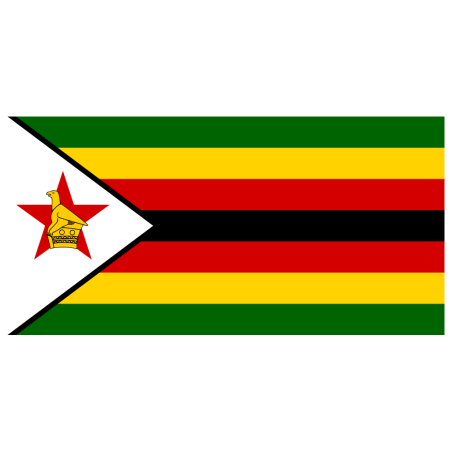ZIMBABWE:Banks under mobile money pressure

Confirmation by the Reserve Bank of Zimbabwe (RBZ) this week that mobile financial activities totalled US$6,1 billion as at December 31, 2014 reflects a growing threat that technology-based monetary transfers are posing to traditional banks.
Norman Mataruka, RBZ director for supervision, on Monday told a Mobile Money Digital Payments and Awards Conference that the mobile money system was growing in leaps and bounds since 2009.
“The mobile money industry has provided the possibility of outreach, vastly beyond traditional banking networks and at significantly lower costs due to the mobile phone characteristics of ubiquity, convenience, speed, security and lower cost,” he said.
Mobile money has removed restrictions to banking activities such as doing business only during banking hours. This convenience, coupled with low fees charged for services as a result of competition, has made mobile banking a preferred platform.
This is evidenced by the RBZ May 2015 statistics which highlight the phenomenal growth in mobile money transfers.
The total value of mobile and internet-based transactions increased from US$453,61 million in April 2015 to US$514,5 million in May 2015, according to the RBZ.
By comparison, cheque transactions stood at a paltry US$13,08 million, an increase from US$10,81 million recorded in April 2015.
The value of transactions processed through the Real Time Gross Settlement (RTGS) system in May 2015 decreased by 12% to US$3,5 billion from US$3,9 billion recorded in April 2015, a clear demonstration of the drop in the use of the traditional banking system.
However, Mataruka pointed out that the mobile money payment systems have been accompanied by some challenges, including “operational risks, money-laundering, fraud and financing of terrorism”.
“The fact that access to mobile financial services cuts across the generality of the population calls for the need to ensure adequate laws and regulation as well as the protection of consumers of digital financial services,” he said.
He said the payment systems must function within a “well-defined and regulated framework that provides for a safe and sound environment”.
The Post and Telecommunications Regulatory Authority has floated a tender to engage a company to monitor mobile network operators’ traffic and financial transfers. In Africa, Ghana has one of the most effective monitoring systems and a leading information technology and telecoms provider from that country, Subah Infosolutions Ltd, is bidding for the tender.
At least 27 companies are bidding for the tender.
The RBZ said there are more than 20 companies actively involved in mobile financial services demonstrating its rapidly growing influence in Zimbabwe.
To show the growing influence of technologically-based banking, Tengai, a company owned by Econet Wireless founder Strive Masiyiwa’s family trust, unveiled its online buying and selling platform at the conference.
Tengai users can pay for their goods on delivery through its EcoCash facility while premium adverts are also paid for through the same channel.
ICT, Postal and Courier Services minister Supa Mandiwanzira told the conference that mobile money has helped promote financial inclusion in the country.
“We have witnessed the pre-eminence of mobile money which has greatly revolutionised the financial services sector by promoting financial inclusion of the previously unbanked population in Zimbabwe and Africa at large,” Mandiwanzira said.
Mandiwanzira said his ministry remains committed to promoting a flexible and conducive regulatory environment to continuously promote e-commerce.
However, he said it could only be achieved by addressing some of the challenges that are currently creating cost overburdens in the ICT industry.
Mandiwanzira said that efforts would be made to strengthen the regulatory framework over mobile money and digital payments.
Mobile phone companies in Africa have in the last couple of years entered the financial services sector through launch of mobile money transfer services — notably Mpesa in Kenya and Ecocash in Zimbabwe.
Other local mobile money transfer companies are NetOne’s OneWallet and Telecel’s Textacash.
Mobile money remittances in Sub-Saharan Africa are projected to reach US$33 billion in 2015 as the services are growing above 6% in more than three countries with increasing mobile connectivity, according to WorldRemit, a United Kingdom-based online service company that lets people send money to friends and family in other countries.
Alix Murphy, senior mobile analyst at WorldRemit said: “Mobile money will play a pivotal role in global remittances, helping to reduce fees, improve speed and convenience for users.”
WorldRemit said worldwide mobile money usage was exploding with 261 mobile money services now live across 89 countries with 103 million active users as of December 2014. More than half of these services currently in operation are in sub-Saharan Africa.
Mobile money has also inspired other innovations such as Hammer and Tongues’ Online Shopping Mall where people are able to shop online from a number of suppliers and pay using Visa cards, Mastercard and EcoCash.
A FinScope Consumer Survey of 2014 shows the proportion of the population accessing formal financial services increased from 38% in 2011 to 69% in 2014 largely as a result of mobile financial services that have become a key delivery vehicle of financial inclusion.
As a result, banks are under pressure to take advantage of the growing use of mobile phones to remain viable as telecoms firms continue rolling out innovative and easily accessible financial products.
SOURCE:THEINDEPENDENT ZM
 Africas leading resource for digital financial services
Africas leading resource for digital financial services


comments